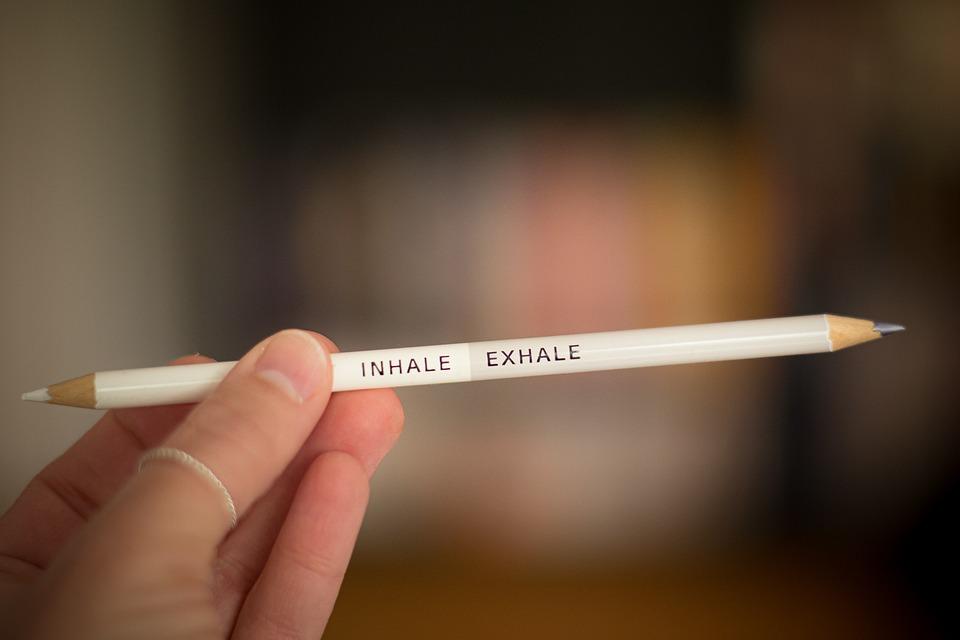Feeling anxious? You’re not alone. Anxiety affects millions of people across the globe, and its grip can feel suffocating. But today, we’re diving into 7 simple steps to calm your anxiety—the tools you need to reclaim your peace of mind and take back control over your life.
Anxiety isn’t just a fleeting feeling; it’s a state of being that can disrupt your daily life. It manifests in racing thoughts, a tight chest, or that nagging sensation in your stomach. Understanding how to manage these feelings is essential. By incorporating practical strategies into your routine, you can learn to navigate anxiety with grace and resilience.
Contents
Step 1: Acknowledge Your Feelings
You might be tempted to brush off those anxious thoughts, but that’s the first mistake. Recognizing and acknowledging your anxiety is a powerful step toward calming it.
- Be Honest with Yourself: Identify what’s triggering your anxiety. Is it work-related stress, personal relationships, or something else?
- Write It Down: Journaling can help clarify your thoughts. Write about what’s bothering you and how it makes you feel.
Acknowledging your feelings isn’t a sign of weakness; it’s a courageous act that paves the way for healing.
Step 2: Breathe Deeply
When anxiety strikes, your body goes into fight-or-flight mode. Your heart races, and your breathing quickens. But you can turn that around with one simple technique: deep breathing.
- Try the 4-7-8 Method: Inhale for 4 seconds, hold for 7 seconds, and exhale for 8 seconds. Repeat this cycle four times.
- Focus on Your Breath: Pay attention to the rise and fall of your chest. This mindfulness technique helps anchor you in the present moment.
Deep breathing isn’t just a temporary fix; it calms your nervous system and decreases anxiety over time.
Step 3: Move Your Body
Physical activity is a natural anxiety reliever. When you exercise, your body releases endorphins—those feel-good hormones that can lift your mood.
- Find What You Love: Whether it’s dancing, yoga, or a brisk walk in the park, choose an activity that brings you joy.
- Make It Routine: Aim for at least 30 minutes of moderate exercise most days. Consistency is key.
Even a short burst of movement can help dispel tension and elevate your spirits.
Step 4: Limit Caffeine and Sugar
What you consume can significantly affect your anxiety levels. Caffeine and sugar can spike your heart rate and increase feelings of nervousness.
- Monitor Your Intake: Keep track of how much caffeine you consume daily. Try swapping coffee for herbal tea.
- Choose Whole Foods: Focus on a balanced diet rich in fruits, vegetables, whole grains, and lean proteins.
Your body and mind are interconnected. Nourishing yourself with the right foods can lead to a calmer state of mind.
Step 5: Connect with Nature
Nature has a unique way of grounding us. Spending time outdoors can reduce anxiety and promote a sense of well-being.
- Take a Walk: Even a short stroll through a park can do wonders for your mental state.
- Practice Mindfulness: While outside, focus on the sights, sounds, and smells around you. This can help center your thoughts.
Connecting with nature isn’t just relaxing; it’s scientifically proven to improve mental health.
Step 6: Seek Support
You don’t have to face anxiety alone. Reaching out for support can make a world of difference.
- Talk to Someone: Share your feelings with a friend or family member who understands. Sometimes, just expressing your thoughts can lighten the load.
- Consider Professional Help: If anxiety is affecting your daily life, a therapist can provide valuable coping strategies tailored to your needs.
Support isn’t a crutch; it’s a lifeline that can help you navigate turbulent waters.
Step 7: Practice Gratitude
Gratitude shifts your focus from what’s wrong to what’s right in your life. It’s a powerful antidote to anxiety.
- Start a Gratitude Journal: Each day, write down three things you’re grateful for. They can be as simple as a warm cup of coffee or a kind word from a friend.
- Reflect on Positivity: When anxiety creeps in, revisit your journal. Reminding yourself of the good can help drown out the negative thoughts.
Embracing gratitude cultivates a positive mindset and strengthens your resilience against anxiety.
Bottom Line
You have the power to calm your anxiety today. By incorporating these 7 simple steps to calm your anxiety, you can reclaim your sense of peace and well-being. Remember, it’s a journey, not a race. Be patient with yourself and celebrate small victories along the way.
Take a moment today to breathe deeply, acknowledge your feelings, and reach out for support. You are not alone in this.
FAQ
How quickly can I feel the effects of these steps?
While some techniques like deep breathing can provide immediate relief, others, like regular exercise or journaling, may take time to show results. Consistency is key.
Is it normal to feel anxious sometimes?
Absolutely! It’s a natural human emotion. However, if it begins to interfere with daily life, consider seeking professional help.
What if I’ve tried these steps before and they didn’t work?
Everyone’s journey with anxiety is unique. It may be helpful to explore new techniques, consult a mental health professional, or join a support group.
Your path to calmness begins with a single step. Embrace it today!
Get Your FREE Natural Health Guide!
Subscribe now and receive our exclusive ebook packed with natural health tips, practical wellness advice, and easy lifestyle changes, delivered straight to your inbox.




